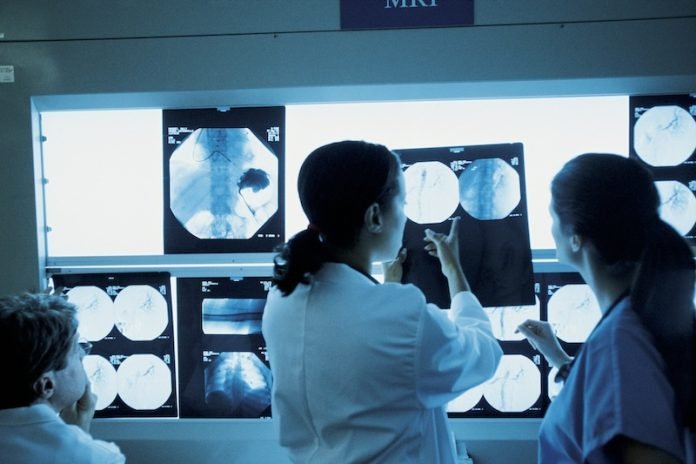
In the journey of heart health management, CT scans emerge as a beacon of clarity, offering a detailed glimpse into the heart’s structure and function.
This non-invasive test has become a cornerstone in diagnosing and guiding the treatment of heart conditions.
Let’s delve into what heart CT scans are, what they’re used for, what to expect during one, and how to interpret the results.
A CT scan, or computed tomography scan, combines a series of X-ray images taken from different angles around your body and uses computer processing to create cross-sectional images (slices) of the bones, blood vessels, and soft tissues inside your body.
When focused on the heart, this technology allows doctors to detect and evaluate heart diseases, anomalies, and the condition of blood vessels with exceptional detail.
One common use of heart CT scans is to check for coronary artery disease—blockages in the arteries that supply blood to the heart. By highlighting build-ups of plaque, CT scans can help predict the risk of a heart attack and guide decisions on treatments ranging from lifestyle changes to surgery.
They’re also invaluable in diagnosing other heart conditions, such as congenital heart disease, problems with the heart valves, and complications from previous heart surgeries.
What’s more, heart CT scans play a critical role in planning procedures like bypass surgery, stent placement, or valve repair, providing a roadmap for surgeons before they make a single incision.
When you’re scheduled for a heart CT scan, the process is straightforward, but it does require some preparation. You might be asked to avoid caffeine or smoking for a certain period before the scan because these can affect your heart rate.
On the day, you’ll wear a hospital gown and remove any metal objects to prevent interference with the imaging.
During the scan, you’ll lie on a table that slides into the center of the CT scanner, a large, doughnut-shaped machine. The technician might give you a contrast dye through an IV to improve the visibility of your heart and blood vessels.
It’s common to feel a warm sensation when the dye enters your body, but this is temporary. You’ll also be asked to hold your breath for short periods to get clear images.
The scan itself is quick, often taking only a few minutes, and it’s painless. Afterward, you can usually go about your day without any downtime.
Interpreting the results of a heart CT scan involves a detailed analysis by a radiologist and your doctor. They look for any signs of heart disease, such as calcifications or blockages in your coronary arteries, structural problems, or other abnormalities.
Depending on the findings, your doctor may recommend further testing, lifestyle adjustments, medications, or procedures to treat any identified issues.
Research has underscored the value of heart CT scans in the early detection and management of heart disease.
Studies have shown that CT scans can accurately assess the risk of heart disease and guide interventions to prevent heart attacks, especially in individuals at intermediate risk where traditional risk factors do not provide a clear picture.
In conclusion, heart CT scans are a powerful tool in the arsenal against heart disease, offering detailed insights that can guide diagnosis, treatment, and prevention strategies.
With their ability to uncover hidden heart conditions before symptoms arise, these scans are pivotal in navigating the complexities of heart health, ensuring that both patients and doctors have the information they need to make informed decisions.
While the thought of undergoing any medical test can be daunting, the heart CT scan’s non-invasive nature and its potential for life-saving detection make it a vital step in caring for your heart.
If you care about heart health, please read studies about how eating eggs can help reduce heart disease risk, and herbal supplements could harm your heart rhythm.
For more information about health, please see recent studies about how drinking milk affects risks of heart disease and cancer, and results showing strawberries could help prevent Alzheimer’s disease.
Copyright © 2024 Knowridge Science Report. All rights reserved.



